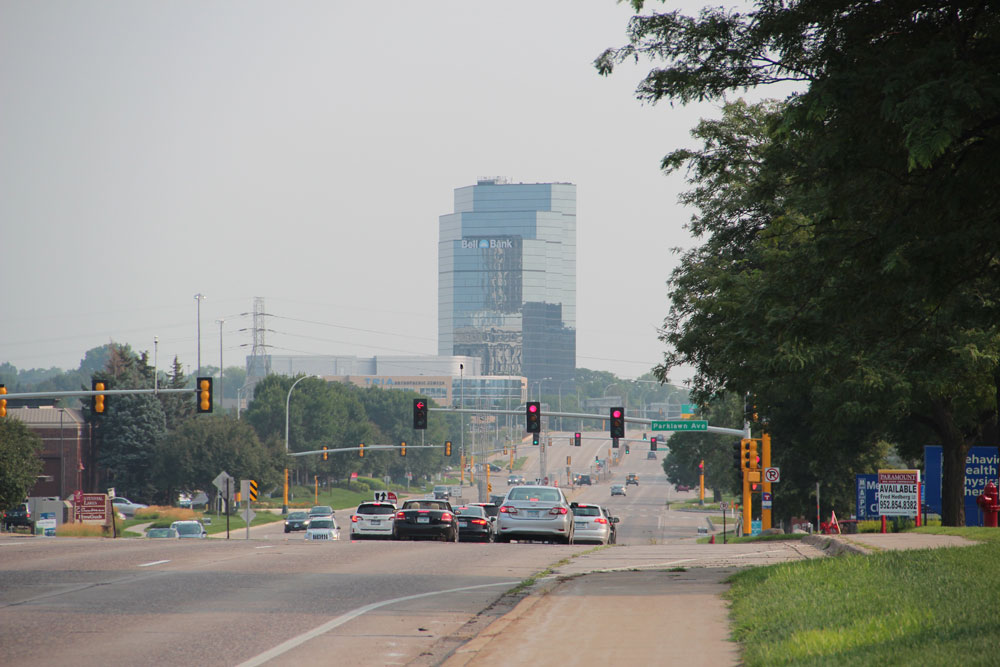
December 17, 2019; Star Tribune
On December 16, 2019, the City Council of Bloomington, Minnesota, approved a $15 million Affordable Housing Trust Fund to save housing located within the Village Club Apartments complex, including over 300 affordable units.
City officials, in conjunction with the Housing and Redevelopment Authority (HRA), agreed to loan $7 million to Aeon, a nonprofit developer, to purchase, rehabilitate, and improve the Village Club complex. This Council took this move to prevent the sale of the complex to a private developer who would certainly use the opportunity to raise rents in a location, like many, many others across the United States, undergoing an affordable housing shortage.
In the past, NPQ has covered community land trusts in the United States, financial instruments that may emerge as a way to better address the nationwide affordable housing crisis. In community land trusts, nonprofits agree to purchase land; they retain the title but sell families houses built on the land. Trusts have become more common in cities like Seattle and New Orleans, and in a similar way, the Bloomington City Council has mitigated the risk of dramatically escalating rents by selling the property to a nonprofit organization, which will repair and rehabilitate existing structures and then rent them out at affordable prices. Aeon plans to save at least 60 percent of the existing units for those who have incomes at or below 60 percent of the median income for the area, and the remaining 40 percent for those at or below 80 percent of that median income.
Though community land trusts have been on the rise in cities, Bloomington’s HRA analyst Cherie Shoquis notes, “Affordable housing trust funds are not standard in the suburbs…what’s really needed for working families in Bloomington is just affordable apartments.”
Shoquist chose to work for Bloomington precisely because of this commitment to affordable housing. The city’s commitment is clear, as it expedited the timeline on the housing trust fund, which was originally slated for 2020. Village Club went up for sale with a closing on December 27th, and the city acted quickly to prevent a private developer from purchasing the property. Bloomington’s community development director and interim HRA administrator, Eric Anthony Johnson, called this an “anomaly” because the turnaround time was so quick, with both City Council and city staff working together and prioritizing the trust approval.
Sign up for our free newsletters
Subscribe to NPQ's newsletters to have our top stories delivered directly to your inbox.
By signing up, you agree to our privacy policy and terms of use, and to receive messages from NPQ and our partners.
The trust fund will make use of some existing city funds and some support from Old National Bank. Aeon has agreed to repay $3 million of the city’s loan by 2021 and the remaining $4 million over a 20-year period.
The Star Tribune notes city officials said no “additional pressure” will fall on taxpayers. “The critical part here is, this is not an increase to the levy,” comments councilmember Jack Baloga. “The degree of cost to create 306 affordable housing units is far, far greater than what the city is lending to Aeon and having returned.”
In 2020, Aeon will focus on handling health and safety repairs on the property and beginning rehabilitation. Following or concurrent with this work, Aeon also plans to apply for other public funding in order to construct up to 300 new affordable units on the same property.
NPQ has discussed problems facing community land trusts in the past, including the high costs of land and a lack of alignment of public policy. A land trust like the one discussed here may face similar issues. Aeon has agreed to pay back the loan costs to the city, but as Baloga points out, rehabbing and constructing new housing units is costly. What will the sustainability plan be for Aeon and Bloomington to ensure this housing continues to be available to low-income residents? How will the nonprofit offset the cost of maintenance?
Estimates say 7 million homes or apartments would fill the unmet need for low-income Americans. If organizations like Aeon can develop models to provide affordable housing, perhaps other markets can adapt them. What makes Bloomington unique is that its City Council reacted so quickly and strongly; in larger cities, like New York and San Francisco, this is often not the case.—Kristen Munnelly












